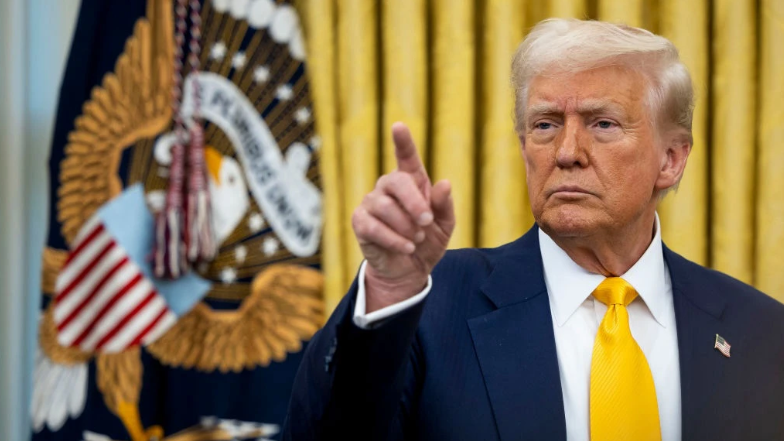Trump Targets IVF Costs, Expands Fertility Options After Talks With Life Advocates
President Donald Trump unveiled a plan Thursday aimed at making fertility treatments more affordable for American families — including major discounts on in vitro fertilization (IVF) drugs — while easing fears among pro-life and religious liberty groups.
Announced from the Oval Office, Trump’s move opens the door for employers to optionally cover IVF through company insurance plans. A White House official emphasized that this is not a mandate, a crucial distinction that relieved pro-life leaders who oppose IVF due to its frequent creation and destruction of embryos.
“We want to make it easier for couples to have babies, raise children, and start the families they’ve always dreamed of,” Trump said.
Massive Price Cuts on Fertility Drugs Through TrumpRx
The centerpiece of the announcement is a third major deal with pharmaceutical giant EMD Serono, which agreed to produce IVF medications in the U.S. and slash costs for American patients.
The fertility drug GONAL-F will be discounted by 796% off its deal price when purchased through TrumpRx.gov, with low- and middle-income women receiving an even steeper 2,320% discount. According to CMS, that translates to savings of about $2,200 per fertility cycle.
EMD Serono’s Senior VP Libby Horne praised the effort: “Thanks to the president’s leadership… Americans will have access to our leading IVF therapies for an 84% discount off list prices.”
Beyond IVF, the company committed to offering deep discounts on other medicines, repatriating foreign revenue, and guaranteeing Medicaid access to MFN (most favored nation) drug pricing.
No Mandates, No Subsidies — A Relief for Pro-Life Groups
Trump’s plan drew cautious praise from groups wary of IVF. While they remain opposed to the practice, they were relieved that the policy stops short of a federal mandate or taxpayer subsidies.
“This was the least bad that we could have hoped for,” said EPPC President Ryan Anderson. “There will be no direct religious liberty or conscience violations, nor implications for taxpayer funding.”
Live Action, which lobbied the White House, called the outcome “disappointing” but acknowledged that the final result was far less troubling than expected. “No subsidy and no mandate is a lot different [than] he sounded last fall,” one pro-life leader said.
Focus on Root Causes and Restorative Reproductive Medicine
Trump’s action also signaled new emphasis on restorative reproductive medicine — treatments aimed at fixing the underlying causes of infertility rather than bypassing them with IVF.
Experts from the Heritage Foundation argue infertility is often a symptom of larger health problems like hormonal imbalance, diet, or lifestyle. Their research shows over half of Americans support prioritizing these treatments first, and many oppose embryo destruction.
Trump nodded to those concerns, saying, “I think we’re going to be doing that,” when asked about supporting access to root-cause therapies. Labor Secretary Lori Chavez-DeRemer confirmed the Department of Labor is launching a rulemaking process to ensure more flexibility and access.
Heritage VP Roger Severino called the announcement “very MAHA” — a nod to the “Make America Healthy Again” initiative gaining traction among conservatives.
A Delicate Balancing Act
Trump’s plan aims to thread the needle — addressing growing infertility rates with real action, without alienating his base of religious conservatives. The administration took months to consult groups ranging from Live Action to pro-family think tanks before finalizing the policy.
Roughly 18% of adults globally face infertility issues, with U.S. rates rising for both men and women due to conditions like endometriosis and declining sperm counts.
By promoting both affordable fertility treatments and moral alternatives, the Trump administration hopes to restore reproductive health while protecting conscience rights.
Whether pro-life groups ultimately embrace the plan remains to be seen. But Thursday’s announcement shows the administration is trying to rebuild a pro-family healthcare policy without forcing Americans to compromise their values.

